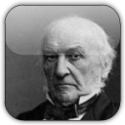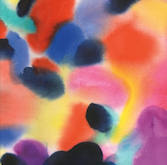|
http://www.salon.com/2015/03/31/lee...dium=socialflow Found this opinion piece in Salon, I don't think that its an accident that our leaders honor and shed tears for dead third world tyrants like this guy and the King of Saudi Arabia quote:Lee Kuan Yew is finally dead — and America’s elites are eulogizing a tyrant and psychological monster It really bugs me how Washington has long had this abominable amoral subculture of the most powerful people in the world that promote and prop up these assholes in developing countries. Freedom is good for domestic consumption but when it comes to international markets: death squads, disappearances, arbitrary arrests, assasinating union organizers are all given the thumbs up by "very serious people" - people more concerned with being mainstream than being right. Ethics tells us we should not act in a way that we would not will everyone else in the world to act. Hypocrisy is white washed as pragmatism but there is nothing pragmatic about it. What it is is selfishness. They aren't seek a solution that is best for everyone, they are brazenly violating common sense moral rules to enrich and empower themselves. The people they should be shedding tears for are people fighting for the people on the ground getting killed. In other news: http://www.straitstimes.com/news/singapore/courts-crime/story/police-arrest-amos-yee-the-teen-behind-anti-lee-kuan-yew-video-201 Amos Yee, who made insensitive remarks on Christianity in video, arrested SINGAPORE - The 17-year-old teenager who made insensitive remarks about Christianity in a YouTube video against Mr Lee Kuan Yew was arrested on Sunday. In the video posted last week, he celebrated Singapore's founding Prime Minister's death and criticised his political career. He also challenged Prime Minister Lee Hsien Loong to sue him. At least 20 police reports have been lodged against Amos Yee since March 27, when he was believed to have uploaded the eight-minute video.
|
|
|
|

|
| # ? Apr 26, 2024 11:44 |
|
Didn't he preside over the turning of Singapore from third world to first world? Seems like something that should be praised.
|
|
|
|
As someone who likes to spit in public I consider him histories greatest monster.
|
|
|
|
"this guy and the King of Saudi Arabia" Let us discuss other monsters of history, such as Fidel Castro and Hitler or maybe Charles DeGaulle and Idi Amin. Mahathir and Pol Pot, anyone?
|
|
|
|
The Article posted:Clinton & Kissinger should be ashamed
|
|
|
|
ReindeerF posted:"this guy and the King of Saudi Arabia" Franklin Delano Roosevelt and Genghis Khan.
|
|
|
|
GhostofJohnMuir posted:As someone who likes to spit in public I consider him histories greatest monster. You're gross, dude.
|
|
|
|
quote:It really bugs me how Washington has long had this abominable amoral subculture of the most powerful people in the world that promote and prop up these assholes in developing countries Oh for goodness sake, not every world leader is "propped up" by Washington, stop being so arrogant. Also, quote:Other stories recommended for you
|
|
|
|
quote:My early experience in Singapore and Malaya shaped my views about the claim of the press to be the defender of truth and freedom of speech. The freedom of the press was the freedom of its owners to advance their personal and class interests. from his autobio, "Managing the Media", in From Third World to First: The Singapore Story This attitude started out with a deep antipathy toward ethnic communal newspapers, the Utusan Malaysia (Malaysian Courier), Nanyang Siang Pau (South China Sea Business Newspaper), and so forth. The later sense that European journalists would enter Singapore in a colonialist expectation of being able to use Singapore as a battleground for their domestic disputes back home - Singapore itself be damned - only exploded in the 1970s, when Singapore's new government reacted badly to pressures from the New Left in Europe. The PAP itself identified with the anticolonial project of the old postwar left in the Labour Party and regarded this as betrayal, more or less. The attitude of the PAP was that its cooperation with British military and economic interests (e.g., trusting in British promises of non-devaluation of the sterling, and then meekly accepting massive losses when Britain devalued anyway) meant that its British allies - the Labour government under Harold Wilson - would correspondingly carry out the withdrawal in a manner that would not compromise Singapore's military and economic interests. Obviously, Macmillan, Douglas-Home, Wilson, and Heath themselves were under very different and rapidly-evolving domestic political pressures. The attitude in Singapore and Kuala Lumpur was that postcolonial leaders had been asked to keep their radicals in line at considerable personal risk, but their supposed allies back in London were unwilling to do the same. ronya fucked around with this message at 11:36 on Apr 1, 2015 |
|
|
|
Lord Windy posted:Didn't he preside over the turning of Singapore from third world to first world? Seems like something that should be praised. He wasn't anti-American enough so clearly not
|
|
|
|
Man at Salon who Libled and was ejected from singapore for attacking Lee Kuan Yew writes angry piece about Lee Kuan Yew. Next up man shouts at cloud.
|
|
|
Lord Windy posted:Didn't he preside over the turning of Singapore from third world to first world? Seems like something that should be praised. Quasimango posted:Oh for goodness sake, not every world leader is "propped up" by Washington, stop being so arrogant. Typo posted:He wasn't anti-American enough so clearly not Byolante posted:Man at Salon who Libled and was ejected from singapore for attacking Lee Kuan Yew writes angry piece about Lee Kuan Yew. Next up man shouts at cloud. For obscene comments and insulting the religious/political feelings of a person, you are all placed under arrest.
|
|
|
|
|
History always forgives Tyrants if they build and or accomplish something notable. As far as I know he didn't fill a bunch of mass graves or invade any other countries so by tyrant standards Lee Kuan Yew was pretty benign.
|
|
|
|
Numlock posted:History always forgives Tyrants if they build and or accomplish something notable. Truly the
|
|
|
blowfish posted:Truly the No, you see, these Eastern types prefer order to freedom.
|
|
|
|
|
Singapore's libel laws are pretty ridiculous and used as a tool to persecute critics. Pointing that out gets you sued for libel. LOL
|
|
|
|
Disinterested posted:No, you see, these Eastern types prefer order to freedom. I disagree, look at how well Iraqi democracy is going. Hopefully we remove Assad too, so Syria can also taste the fresh fruit of democracy. tsa fucked around with this message at 14:29 on Apr 1, 2015 |
|
|
|
P-Mack posted:Singapore's libel laws are pretty ridiculous and used as a tool to persecute critics. Pointing that out gets you sued for libel. LOL The most British of colonies.
|
|
|
|
Asia is even BETTER at capitalism than America. Goddamn these guys are great at everything.
|
|
|
|
This piece is a screed, against not only LKY and the West, but Singapore's ruling party. So, a PAP smear. Trochanter fucked around with this message at 15:32 on Apr 1, 2015 |
|
|
|
Lord Windy posted:Didn't he preside over the turning of Singapore from third world to first world? Seems like something that should be praised. Saddam Hussein presided over the modernization of Iraq, doesn't mean he wasn't a dictator.
|
|
|
|
ITT: We are PAP *Owns all the houses, holds elections, evicts areas that voted for the opposition because of the free market. Repeat as necessary to be free and democratic* It's almost like fascism is the most efficient form of capitalism.
|
|
|
|
How do Singaporeans feel about their government, their political system, and their past?
|
|
|
|
Everyone I've met is loving thrilled, they love it. They are also on the wealthier side of the equation so that's what you'd expect. Personally, I think the relatively benign dictatorship of LKY was fine, he did a lot to forge the country into what it is. In that way, he's a lot like Ataturk. Unlike Ataturk, he didn't set the country up for "Democracy with Turkish Delight", he used a quick placeholder to let his oldest son mature a little bit then ensured power would go to his son. That kind of father-son transition of power is usually a pretty bad thing. We'll see what happens over the next couple of elections. He's already made some reforms to make Singapore less democratic, escalated legal actions against the opposition and increased election tampering. A lot of the criticism against LKY is using the past to comment on the present.
|
|
|
|
The article lost me when it brought up the Ukraine.
|
|
|
|
Shbobdb posted:*Owns all the houses, holds elections, evicts areas that voted for the opposition because of the free market. Repeat as necessary to be free and democratic* Do you live in Singapore? I think not. The author in the OP has obvious (justified) personal animosity against LKY but he clearly has no clue what present day Singapore is like.
|
|
|
|
Shbobdb posted:Everyone I've met is loving thrilled, they love it. They are also on the wealthier side of the equation so that's what you'd expect. quote:We'll see what happens over the next couple of elections. He's already made some reforms to make Singapore less democratic, escalated legal actions against the opposition and increased election tampering. A lot of the criticism against LKY is using the past to comment on the present. Almost all people who have been sued recently have been marginal bloggers not affiliated with any organized party and shunned by many opposition members. It's dumb to sue them and just gives them more attention, but the government here isn't exactly state of the art when it comes to PR. And what they said was way less harsh than what random internet commenters say every day without getting arrested. I'm not aware of any serious election tampering, there was one incident with ballot boxes in 2011 I'm aware of but that's easily chalked up to incompetence and wouldn't have swayed the election regardless.
|
|
|
|
Shbobdb posted:Everyone I've met is loving thrilled, they love it. They are also on the wealthier side of the equation so that's what you'd expect. That's the fly in the ointment of any "benevolent dictator" story. Perhaps it is possible to have a dictator who does more good than harm, by ruthlessly suppressing his opposition but otherwise empowering and enriching his people. These systems lend themselves to nepotism and corruption, though, and way too much is riding on the competence of a person who cannot be easily removed from power. As pretty much every monarchy in history has proven, you won't get lucky with your ruler every time.
|
|
|
|
TheBalor posted:That's the fly in the ointment of any "benevolent dictator" story. Perhaps it is possible to have a dictator who does more good than harm, by ruthlessly suppressing his opposition but otherwise empowering and enriching his people. These systems lend themselves to nepotism and corruption, though, and way too much is riding on the competence of a person who cannot be easily removed from power. As pretty much every monarchy in history has proven, you won't get lucky with your ruler every time. This. The problem with the "benevolent king/dictator" argument used by authoritarians and authoritarian sympathizers is "what if you don't have a good king?"
|
|
|
|
Fojar38 posted:This. The problem with the "benevolent king/dictator" argument used by authoritarians and authoritarian sympathizers is "what if you don't have a good king?"
|
|
|
|
You are right, I don't live in Singapore, so my information is second hand and not "lived in". I've just heard that the public housing (where most people live) is heavily politicized in a "vote for us or else" kinda was as opposed to a "noblesse oblige" public welfare program. The only people who've mentioned it in that light (n=2) could just be assholes, it wouldn't surprise me. Otherwise it hasn't really come up in a political discussion, so that's all I've got on the issue. Educate me, I'm fascinated by Singapore. It's an exciting melting pot of everything. Edit: My exposure to Singapore has been through the lens of middle aged businessmen, so that obviously biases my experience. Shbobdb fucked around with this message at 17:56 on Apr 1, 2015 |
|
|
|
Shbobdb posted:You are right, I don't live in Singapore, so my information is second hand and not "lived in". I've just heard that the public housing (where most people live) is heavily politicized in a "vote for us or else" kinda was as opposed to a "noblesse oblige" public welfare program. The only people who've mentioned it in that light (n=2) could just be assholes, it wouldn't surprise me. Otherwise it hasn't really come up in a political discussion, so that's all I've got on the issue. Educate me, I'm fascinated by Singapore. It's an exciting melting pot of everything. Yeah the PAP quite openly says "if your constituency votes opposition your buildings go to the bottom of the list for upgrading" but US urban political machines do the same thing, they're just less explicit about it.
|
|
|
|
That's probably it, an old rumor. Still a pretty scary rumor, especially when coupled with media control. Is that still something older people are likely to believe or did I just find some holdouts from a bygone era?
|
|
|
|
Shbobdb posted:Is that still something older people are likely to believe or did I just find some holdouts from a bygone era?
|
|
|
|
It's never been noblesse oblige. Public housing in Singapore inherits from British governing elite attitudes toward public housing from the 1920s to 1960s, namely that the point is modernization and progress, and furthermore that for generally-unspecified reasons, the way to modernization and progress lies through extensive public ownership and adherence to long-term central planning. It's not a house because people, individually speaking, are owed a house with indoor plumbing, it's a house because modernization implies that everyone lives in a house with indoor plumbing. If achieving this goal requires Likewise, public housing upgrades (especially in the form of retrofitted lifts) are popular, as are covered walkways, public exercise areas, multipurpose halls, etc. But it's not done because the state decided that it is owed to residents; rather, it is done because there are budgetary surpluses to be reinvested in the aggregate housing stock. The attitude of the PAP is that the reality of needing to acquire such surpluses should be made as tangible to voters as possible, and second, that this should be done in absolute adherence to the rule of law and the nominally apolitical alignment of the public housing statutory board (the HDB) and the civil-service infrastructure ministry it answers to, and third, that the point of voting is to create an incontestably public mandate toward these ends. Hence town councils (1988), to begin with. The idea of devolving local services was driven by competing impulses within the PAP: first the idea that younger voters had become disenchanted due to a perceived inability to influence central policy through constituency elections, and second, that younger voters had become detached from the unpleasant costs of maintaining and upgrading public housing. The idea is basically a neoliberal one popularized by Third Way governments elsewhere in the West (although the PAP would never put it in those terms): voters are presented with what seems like participatory democracy, but the participatory body they are voting for has a rigid budget or easily-felt taxes, so voters wind up producing a mandate for a level of local services that is constrained within that budget. In this way, the unpopularity of, e.g., demands for co-payment for lift upgrading would not fall upon Parliament writ large. This proved insufficient because in practice the HDB continued to have to fund the vast majority of the cost of upgrading; like other political innovations of the era (NMPs, NCMPs, re-empowered People's Associations, etc.) the government has not really been sufficiently interested in the idea to devolve any serious level of funding or power. So in the mid-1990s to 2000s, there was a second wave of innovations to implement essentially the same political calculus: accumulation of surplus funds would be limited in the event of a change of party in the local council*, certain aspects of the upgrading works would be spun off into separate programmes**, and, most infamously, that although all wards would eventually be upgraded, opposition-held wards would be granted the main upgrading funds last***. * observe that this came to bite the PAP back in the case of Potong Pasir, since the PAP retaking the ward would similarly limit this accumulation. The PAP did not retake the ward until 2011, under Chiam's dubious move of putting his wife in that seat so that he could run in a GRC. ** heavily driven by PAP backbenchers and civil-service concerns about aging populations trumping Kuan Yew's dismissiveness towards Singaporeans demanding that lifts stop at every floor. Note also that the separate programmes require their own housing-block-level polling to produce a 75% mandate amongst Singaporean citizens in that block before upgrading (and co-payments) go ahead, thus duplicating the logic of devolution to the level of physical tower blocks. The polling is religiously carried out although only about 1% of blocks reject upgrading when offered. *** there was a lot of speculation over whether opposition wards would ever actually receive the funding, but Hougang and Potong Pasir eventually received the funds in 2009. The extent to which this was due to perceived backlash in the 2006 GE, where the (by then) ten-year-old waiting list policy was publicly debated even in the state media, is itself unclear Gail Wynand is correct in observing that the level of gerrymandering and favoured districts in Singapore is minor compared to what US municipalities and states get up to, but the PAP is unusual in being both explicit about it in rhetoric and legislation, and also adhering to it when the same rules work against them, as in the case of Potong Pasir.
|
|
|
|
I knew the guy was full of poo poo when he used "dirigsme" without knowing what it means, because it sounds scary. Dirigisme is a form of market economics where the state exercises a heavy degree of control, owns entire sectors, and manipulates the markets with regulations and subsidies to guide development according to a central plan. It was used in France during the early years after World War II, and is about as far as you can get from neoliberalism without throwing capitalism away altogether. It certainly wouldn't get you a 0.48 Gini. How do the poor even survive under a Gini that high? E: well that is some awfully generous public housing... Woolie Wool fucked around with this message at 23:20 on Apr 1, 2015 |
|
|
|
No, he's right, the locally owned economy is actually very dirigiste, something like 70% of locally owned firms are government linked through the sovereign wealth funds. But they generally (but not always) run the GLCs with a focus on profit. You get the high inequality through normalizing high executive compensation for both private and government officials, and running a financial center that has an explicit policy of maximizing the number of expat billionaire residents. As for how the poor survive, barely. Hunched over old people collecting scrap to survive are a daily sight. If nothing else they usually (but not always) have a roof over their heads and some modicum of access to decent healthcare. Soy Division fucked around with this message at 02:31 on Apr 2, 2015 |
|
|
|
I'm not sure if you are joking, but Singapore does exercise a heavy degree of control, owns entire sectors through its investment arms, and manipulates the markets with regulations and subsidies to guide development according to a central plan. It is less so today, but Singapore was heavily dirigiste until the mid-1980s: quote:In stark contrast to the minimalist policies pursued by the Hong Kong government, in the postwar era the government of Singapore has pursued maximalist policies involving widespread state participation in economic activity financed, in the main, by extensive taxation of labor income. The 1950s and early 1960s were a period of economic stagnation in Singapore, as trade, which was the lifeblood of this entrepot economy, failed to expand. Arguably the stagnation of the 1950s can be attributed to the communist insurgency in Malaysia and the instability caused by racial and anti-British political riots in Singapore. The 1961-1964 development plan actively sought domestic industrialization, erecting trade barriers, providing tax incentives to foreign investors, and initiating a large infrastructure investment program. The early 1960s, however, featured continued political conflict, this time with Singapore's principal trading partners, Malaysia and Indonesia. Consequently, despite the expansion of construction activity, real GDP per capita rose only 2.9% per annum between 1960 and 1965. 1966 witnessed a brief resurgence of trade (as international political relations improved), but in 1967 growth slowed. In July 1967 Britain announced that it would withdraw all of its military forces from Singapore by the mid-1970s. British military bases are believed to have employed, directly and indirectly, 16% of the workforce and accounted for 13-20% of GDP. Meanwhile, Singaporean attempts to industrialize and attract foreign investment drew mixed results, as manufacturing expanded slowly and the giant government-built Jurong Industrial Estate turned into an empty white elephant. Contemporary speeches by Singaporean policymakers convey a palatable sense of desperation. This is arguably most vividly demonstrated in Neptune Orient Lines, the Housing Development Board, and the Singapore Bus Services episode. Neptune Orient was the most classically dirigiste - there was an industrial mission (set up containerized logistics in Singapore), and Goh Keng Swee was the man to do it. HDB was classically progressivist in the vein of regarding its mission as a blend of social progress, actualizing popular mandates, and modernization over status-quo private sector corruption/ineptness:     (observe the sheer contempt toward landlords too) and the chaotic formation of SBS in 1975 (read the whole thing, it's fascinating) - the vacillation of the Singapore government between refusing to embrace nationalization and, uh, nationalizing it, and then having to second civil servants and army officers to run the thing, representing a trenchantly anti-nationalization attitude eventually losing to a political reality where the party's only real strategy for handling a private-sector problem full of scheming Chinese family capitalists and radicalized Chinese labour was to nationalize everything and hand it to English-speaking bureaucrats and unions that they controlled and trusted. As in much of the West, Singapore underwent dramatic privatizations across the 1980s. Although investment arms still own majority shares of the relevant corporations, the tangled ad-hoc bureaucracies that built up expertise in operating private industries toward political ends was dismantled, and minority shareholder management has meant less parachuting of ministers into directorial positions. Contemporary industrial policy in the form of Economic Development Board subsidy programmes isn't quite the same as Lim Kim San or Goh Keng Swee personally marching in. Orders of magnitude in just how much the state "creamed off" for policy ends (as Ngiam colourfully puts it) do make a difference. As in the section quoted from Young above, Singapore represents exactly the Soviet-era idea of suppressing consumption to fund investment that fuels rapid growth. Rapid growth sounds very nice, but don't forget that consumption was suppressed. Gini is admittedly unreliable as a measure of inequality in Singapore due to the role that publicly-owned and heavily-subsidized housing, education, and healthcare play, but it's certainly the case that there is a generational problem with coerced savings leading to a shortfall in disposable income for older generations of lower-income workers. ronya fucked around with this message at 03:26 on Apr 2, 2015 |
|
|
|
"Authoritarian state capitalism" is an economic system whose only successes have been in spite of itself. Singapore because of its geographic location and China because of its sheer size.
|
|
|
|

|
| # ? Apr 26, 2024 11:44 |
|
Fojar38 posted:This. The problem with the "benevolent king/dictator" argument used by authoritarians and authoritarian sympathizers is "what if you don't have a good king?" http://en.wikipedia.org/wiki/Crisis_of_the_Third_Century 
|
|
|















 I CANNOT EJACULATE WITHOUT SEEING NATIVE AMERICANS BRUTALISED!
I CANNOT EJACULATE WITHOUT SEEING NATIVE AMERICANS BRUTALISED!











